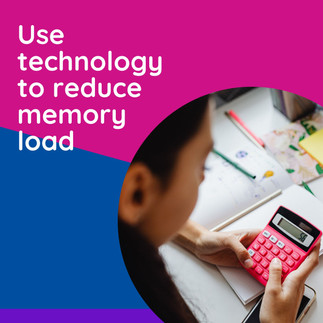
Welcome to our blog on strategies to support memory difficulties. From reducing distractions to employing memory aids and technology, Karen Preston, an Educational Psychologist here at Total Children’s Therapy, shares practical tips to help young individuals enhance their memory skills and overcome challenges in learning and retaining information.
Strategies to support Memory Difficulties
Try to get the young person’s attention before instructions are given. Cue them in to listening” Listen carefully … I will be giving an instruction… question…. explanation ….” Keep distractions to a minimum.
Reduce background noise where possible. Reduce whole class talk where small groups of paired discussion would be better.
Consider seating so that the young person can see you as this helps concentration.
Manage the working memory load (reduce the amount that has to be remembered).
Keep instructions short and concise. Repeat information if required using the same language. If giving lengthy instructions, pause between each stage. Give instructions in the order the task is done in.
Break tasks down into smaller components. Check the young person knows what to do throughout the task.
Identify topics clearly, minimise topic changes and signal clearly when this happens.
Encourage child to ask for information if they need it.
Provide repetition for important information. Encourage young person to use rehearsal strategies, like repeating what they have heard, explaining to a friend what they must do.
Increase the meaningfulness of the material and help it to become familiar to the child.
Use simple language. Reduce grammatical complexity. Pre-teach complex language to enhance understanding.
Use a range of memory aids, (put tricky spellings on the board, keywords for main ideas, number lines, posters, wall charts, dictionaries, abacuses, multiplication grids, calculators, audio recorders). Teach young people how to use these aids.
Use a range of technology to reduce the memory load (Dictaphones, calculators, notes apps on the phone). Teach children how to use these effectively.
Increase the processing demands and working memory load as the young person’s capacity increases.
Teach the child to develop strategies to overcome memory problems (use rehearsal, memory aids, organisational strategies and asking for help).
Provide summaries at the end of the lesson to consolidate the main idea. Support this with visual information.
Provide written support / reminders / online guidance for homework tasks. Encourage the use of a homework diary / oral recording of homework tasks.
Details about our Educational Psychology service can be found using the link below. More details of Karen's training and background can be found here.







Comments